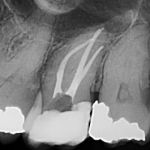- 1-understanding-dental-prosthesis-and-its-types
- 2-daily-cleaning-routine-for-dental-prosthesis
- 3-best-products-to-use-for-dental-prosthesis-care
- 4-handling-and-storage-tips-to-prevent-damage
- 5-avoiding-common-mistakes-in-dental-prosthesis-care
- 6-professional-checkups-and-when-to-see-a-dentist
1. Understanding Dental Prosthesis and Its Types
Dental prostheses are artificial devices designed to replace missing teeth and restore oral function and aesthetics. Common types include complete dentures, partial dentures, dental implants, and bridges. Each type requires specific care practices to maintain hygiene and functionality.
Knowing your prosthesis type helps tailor your care routine effectively, ensuring longevity and comfort. For example, removable dentures demand daily cleaning and soaking, whereas implants require gentle brushing and flossing around the gum line.
2. Daily Cleaning Routine for Dental Prosthesis
Maintaining a consistent cleaning routine is critical for preventing plaque buildup, staining, and odors on your dental prosthesis. For removable dentures, remove and rinse them after meals to eliminate food particles.
Use a soft-bristled denture brush or toothbrush with non-abrasive denture cleaner to gently brush all surfaces. Avoid regular toothpaste as it can be too abrasive. Rinse thoroughly with lukewarm water, never hot, to prevent warping.
For fixed prostheses like bridges or implants, brush twice daily using a soft toothbrush and fluoride toothpaste, paying attention to the gum line. Interdental brushes or floss threaders assist in cleaning hard-to-reach areas.
3. Best Products to Use for Dental Prosthesis Care
Choosing appropriate cleaning products enhances prosthesis maintenance. Denture cleansers in tablet form can be used for soaking to disinfect and remove stains. Avoid bleach-based products as they can damage the material.
Specialized brushes designed for dentures or implants improve cleaning effectiveness. Additionally, moisturizing solutions or denture adhesives help keep prostheses comfortable and securely fitted.
Consulting with dental professionals can guide you toward the safest and most effective products for your specific prosthesis.
4. Handling and Storage Tips to Prevent Damage
Proper handling reduces the risk of accidental drops and cracks. Always hold your dental prosthesis over a soft surface or basin of water during cleaning. When not in use, store removable prostheses in water or a denture soaking solution to maintain moisture and shape.
Avoid wrapping dentures in tissue or leaving them dry, as this can cause shrinkage and deformation. For fixed prostheses, regular dental visits ensure their integrity and address any fit issues promptly.
5. Avoiding Common Mistakes in Dental Prosthesis Care
Common errors include using abrasive toothpaste, neglecting daily cleaning, and sleeping with removable dentures in place, which can lead to infections or oral sores. Skipping professional checkups may result in unnoticed damage or poor fit, causing discomfort.
Another frequent mistake is improper storage or using hot water during cleaning, which can deform dentures. Educating yourself on correct care routines protects your investment and oral health.
6. Professional Checkups and When to See a Dentist
Regular dental visits are essential for maintaining dental prostheses. Dentists can professionally clean your prosthesis, adjust fit, and inspect for damage or oral health issues.
If you experience discomfort, persistent sores, difficulty chewing, or changes in prosthesis stability, schedule an appointment promptly. Early intervention prevents complications and prolongs prosthesis lifespan.
For additional support, products, and professional advice on how to care for dental prosthesis, visit Dentistry Toothtruth, your trusted partner in oral health.







 UI Health Mile Square Health Center - Primary and Immediate Care3.0 (13 review)
UI Health Mile Square Health Center - Primary and Immediate Care3.0 (13 review) Southside Orthodontics - Your Colonial Heights and Chesterfield Orthodontist4.0 (274 review)
Southside Orthodontics - Your Colonial Heights and Chesterfield Orthodontist4.0 (274 review) Pasha Dental Group Los Angeles - Dr. Nazli Majd4.0 (181 review)
Pasha Dental Group Los Angeles - Dr. Nazli Majd4.0 (181 review) North Penn Endodontics Group4.0 (87 review)
North Penn Endodontics Group4.0 (87 review) Root 66 Endodontics4.0 (16 review)
Root 66 Endodontics4.0 (16 review) Pediatric Dentistry of Newnan, LLC4.0 (199 review)
Pediatric Dentistry of Newnan, LLC4.0 (199 review) The Importance of Oral Health Education During Pregnancy for a Healthy Pregnancy
The Importance of Oral Health Education During Pregnancy for a Healthy Pregnancy Best Tips for Brushing Your Teeth Properly for Healthy Gums: Essential Techniques for Oral Health
Best Tips for Brushing Your Teeth Properly for Healthy Gums: Essential Techniques for Oral Health Why Skipping Dental Checkups Can Lead to Bigger Oral Health Problems
Why Skipping Dental Checkups Can Lead to Bigger Oral Health Problems Advantages of Porcelain Dental Restorations
Advantages of Porcelain Dental Restorations How Can Diabetes Cause Tooth and Gum Problems? Preventing and Managing Oral Health Issues
How Can Diabetes Cause Tooth and Gum Problems? Preventing and Managing Oral Health Issues Healthy Habits for Promoting Good Oral Health and Hygiene: Tips for a Healthy Smile
Healthy Habits for Promoting Good Oral Health and Hygiene: Tips for a Healthy Smile